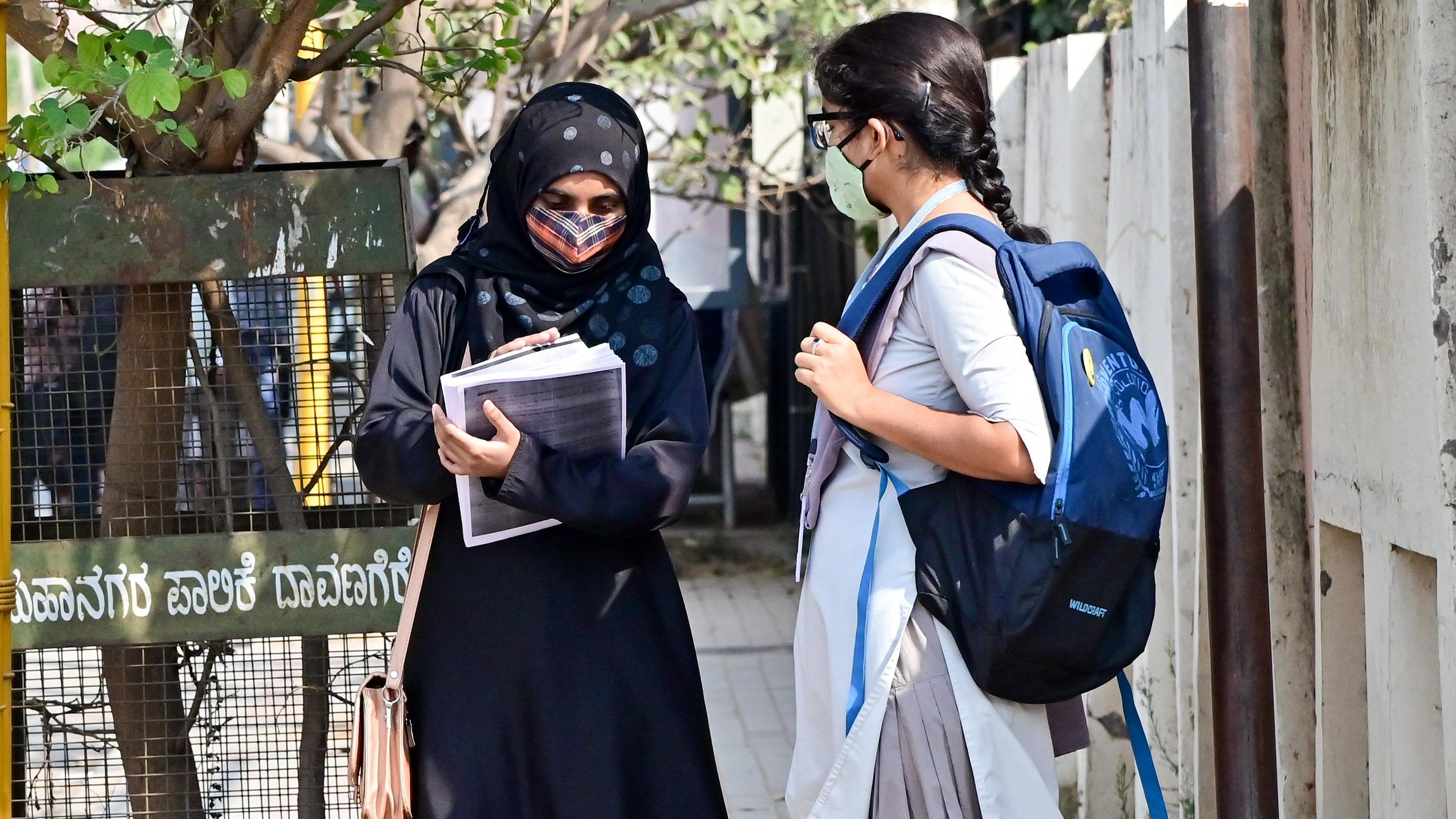
The Supreme Court on Wednesday refused to give a date for an urgent hearing on a plea challenging the Karnataka High Court order, that upheld the ban on wearing hijabs in classrooms as it was of the opinion that hijabs did not form part of essential religious practice in Islamic faith.
Senior advocate Sanjay Hedge, representing the petitioners, mentioned the plea before a bench presided over by Chief Justice N V Ramana.
He said the matter was urgent as several girls had to appear for their exams.
The bench, also comprising Justices A S Bopanna and Hima Kohli, said that others too mentioned the matter and the court would look into it.
Hedge reiterated that exams were starting and the matter was urgent. The bench, however, responded that it needed time and would post the matter for hearing after Holi holidays.
"Give us time, we'll post the matter after vacations (Holi)," the bench said.
On Tuesday, the Karnataka High Court's three-judge bench led by Chief Justice Ritu Raj Awasthi dismissed a plea seeking permission to wear hijab in classrooms, saying prescription of uniform was a reasonable restriction.
Hours after a plea was filed in the top court by students led by Niba Naaz, contending that wearing of hijab was protected under the fundamental right to privacy, expression and conscience guaranteed under the Constitution.
Also Read | A timeline of the hijab row in Karnataka
It also claimed the Karnataka Education Act, 1983, and the rules made thereunder, do not provide for any mandatory uniform to be worn by students.
A plea filed through advocate Adeel Ahmed and Rahamathullah Kothwal said the High Court order created an unreasonable classification between the non-Muslim female students and Muslim female students and thereby was in straight violation of the concept of secularism which forms the basic structure of the Indian Constitution.
The petition filed by Mohamed Arif Jameel and others, said, "The HC's order is also in sheer violation of the Article 14, 15, 19, 21 and 25 of the Constitution and also violates the core principles of the International Conventions that India is a signatory to."
It also claimed the HC sought to curtail the fundamental rights of Muslim student-women by upholding the February 5 Government Order which bars Muslim women from wearing the hijab and pursue their education.
It said that the right to wear a hijab is an 'essential religious practice' and falls within the ambit of the right of expression guaranteed by Article 19 (1) (a), the right to privacy and also the Freedom of Conscience under Article 25 of the Constitution.
Check out the latest DH videos here:
